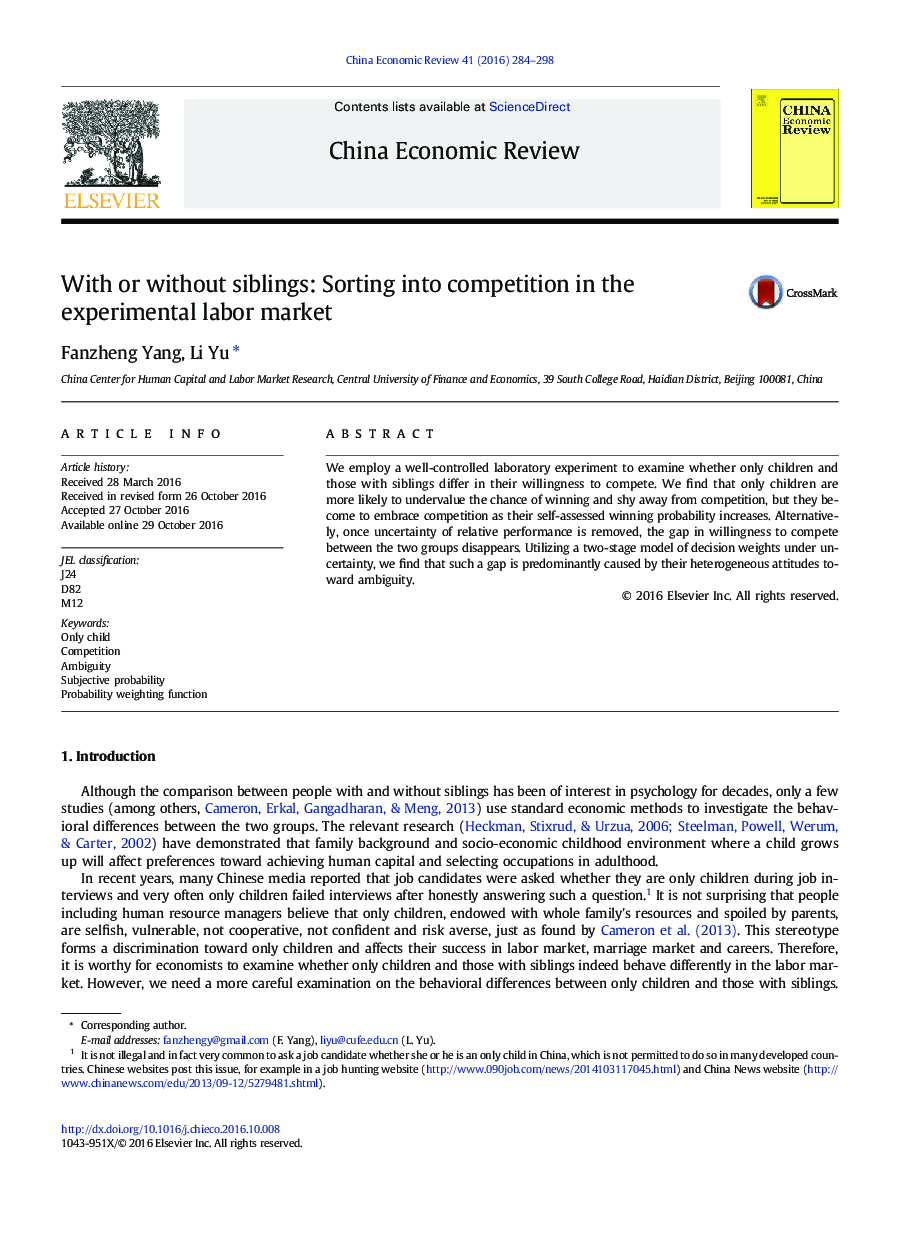| Article ID | Journal | Published Year | Pages | File Type |
|---|---|---|---|---|
| 5047252 | China Economic Review | 2016 | 15 Pages |
â¢We perform a well-controlled laboratory experiment, utilizing a two-stage model of decision weights under uncertainty.â¢Only child undervalues the chance of winning and shy away from competition.â¢Only child embraces competition as self-assessed winning probability increases.â¢Heterogeneous attitude toward ambiguity leads to different competition attitude.â¢Feedback on relative performance reduces difference in willingness to compete.
We employ a well-controlled laboratory experiment to examine whether only children and those with siblings differ in their willingness to compete. We find that only children are more likely to undervalue the chance of winning and shy away from competition, but they become to embrace competition as their self-assessed winning probability increases. Alternatively, once uncertainty of relative performance is removed, the gap in willingness to compete between the two groups disappears. Utilizing a two-stage model of decision weights under uncertainty, we find that such a gap is predominantly caused by their heterogeneous attitudes toward ambiguity.
